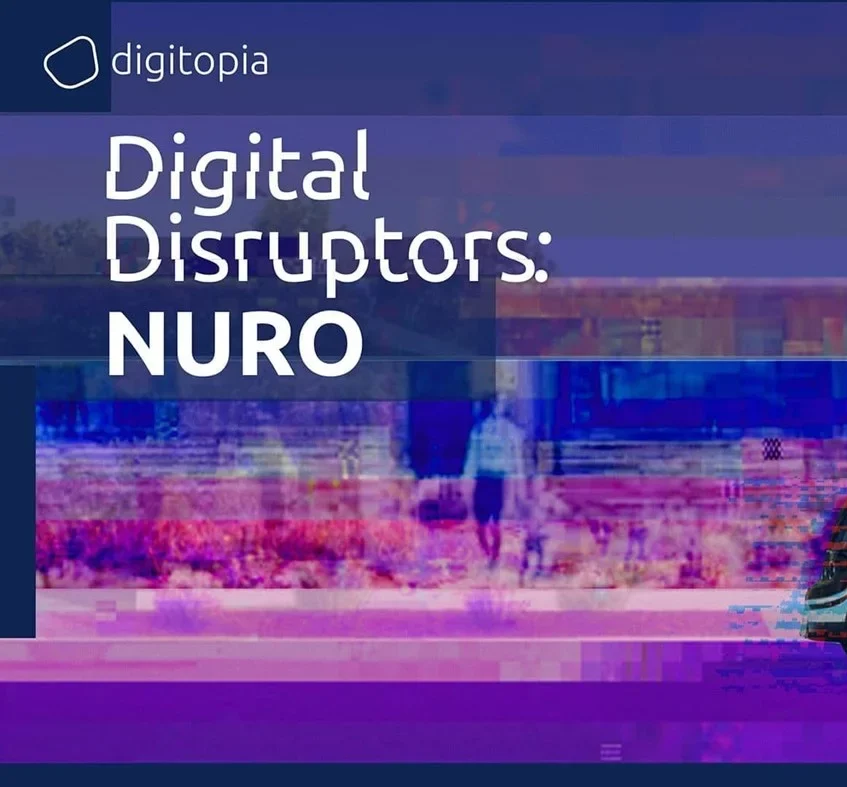
The most prominent players that come to mind when talking about autonomous cars are Tesla and Waymo. However, neither of these game-changing companies were able to acquire the very first permit to deploy fully autonomous vehicles in human-driven traffic without a safety driver. Enter: Nuro. An overlooked start-up that is disrupting the game-changers by acquiring the very first permit to hit the road; completely driverless.
Small, but mighty, this disruptor should not be overlooked at all. With a value of around $1 to $10 billion, Nuro is an autonomous vehicle start-up that focuses on logistics, not transportation. The company’s investors include SoftBank Vision Fund, Toyota’s Woven Capital and, as its latest, Chipotle Mexican Grill. Nuro is seen not only as an EV outlook disruptor, but also as a last mile delivery and e-commerce consumer behavior radical.
What’s the Big Deal?
Nuro focuses its autonomous vehicle technology on delivery and logistics; specifically local last mile delivery such as groceries and food take-out. In the age of Amazon and e-commerce heightened by the pandemic, the company’s solution benefits both local businesses and e-commerce giants while also reducing traffic accidents and shipment costs for the consumer.
Looking at its latest vehicle, R2, the first thing that catches the eye is…no driver’s seat! The vehicles are built to only carry inanimate objects, making them lighter, slower, and more nimble than a regular human-driven passenger car. It is also considerably smaller than an average car, accelerating the manufacturing process. With completely electric and autonomous vehicles, Nuro aims to eliminate the time and resources spent on life necessities. However, gaining permission to earn the public deployment for autonomous vehicles wasn’t easy. Nuro took an ecosystem approach on product development to gain confidence. Before developing their own vehicles, Nuro began by modifying a Toyota Prius to test their technologies and collect data for constant improvement. Today, Nuro is using a fleet of autonomous vehicles to collect data and optimize routes, then feeding that data into its latest prototypes. A great example of using digital to continuously innovate.
The Core Disruption
Nuro puts safety at the heart of everything they do. The company has published a voluntary safety report that discloses the specs of their vehicles to prove their “safer roads with Nuro” intention.
Nuro vehicles are an exemplary approach to safety in traffic. With custom hardware regarded as industry best-in-class, triple redundancy across all critical components, and self-driving software that constantly learns from vehicle operators extensively trained on safe driving, the company has created a layered fall-back strategy that always chooses the safest option.
The company has high specialization on last-mile delivery, making their product design fully function-oriented. Their vehicles are designed to elevate the delivery experience, all the while ensuring traffic safety and bringing ease to the customer experience. The pandemic gave the company the chance to leverage their know-how to deploy contactless delivery solutions.
The Digital Superpowers
Design: The vehicles’ front end is designed as a “crumple zone” to minimize potential injury by using softer materials instead of traditional vehicles which are made of heavy metals to protect the driver inside.
Connectivity: The autonomous driving software is fed data by GPS and onboard sensors to create high-definition 3D maps to mark road features. Then, they use vehicle sensors, 12 high-definition cameras, radar, LIDAR, ultrasonic sensors, and audio sensors to create a live image of the surroundings to check whether anything has changed from the map previously created.
Speed: The vehicles are equipped with onboard sensors and driving systems that share real time data with the company to check for errors, potential dangers, and maintenance status hundreds of times per second, ensuring safety in real time. To ensure access to critical information even if there was a damage, there is a redundant data storage device.
Intelligence: To improve the behavior data collected by Nuro’s driverless vehicles, the self-driving software used is improved by testing that software on traditional passenger cars. This method allows Nuro to improve their driverless assets by collecting hardware, vehicle types, and road mapping capabilities.
Lessons Learned
Nuro has already partnered with big names such as Walmart, CVS Pharmacy, Kroger, Dominos, and Chipotle to provide last-mile delivery and has deployed their commercial driverless services on public roads.
The company is a great example of taking customers’ needs to heart and specializing with the solution to those needs. While the EV market is getting more competitive day by day, Nuro’s market share has a strong stance to address industry needs.
Using data and analytics for constant improvement and innovation will moreover ensure Nuro stays competitive in the new market dynamics of e-commerce and in the post-pandemic era.
The Digital Maturity Connection
Every organisation has strengths and weaknesses. Don’t waste time developing your weaknesses – instead, like Nuro, play to your strengths. Focus on improving those areas of expertise. Harness them to gain a competitive advantage and rise through the ranks of your industry. Digital capabilities should be at the forefront of these efforts. Utilise digital to enable integration, optimisation, and simplification to become more competitive and better integrated with your business partners. Going through a digital transformation is crucial to overcome automotive industry challenges, specifically.

